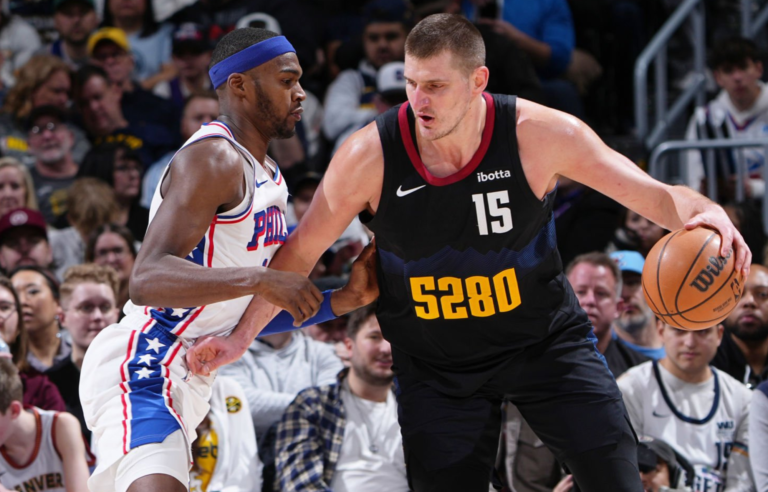Durability is paramount when it comes to public seating in arenas, stadiums, gyms, and sports fields. High-traffic areas need materials that withstand constant use, exposure to various weather conditions, and rigorous maintenance. Today, manufacturers of bleacher chairs and other stadium seating options have advanced in their selection of standardized materials, focusing on durability, sustainability, and comfort. This article explores the common materials used for bleacher chairs, their benefits, and their application in various settings.
What are Bleacher Chairs?
Bleacher chairs are specially designed seats for stadiums, arenas, and other venues where spectators gather to watch events. These chairs must be both sturdy and comfortable to accommodate people for extended periods. Bleacher seating often comes in modular units that can be easily installed and adapted to different spaces, such as gyms, fields, and arenas.
In designing bleacher seating, manufacturers take into account various factors, including weight capacity, UV resistance, water resistance, and ease of maintenance. These considerations help ensure that the chairs not only provide comfort but also withstand the test of time.
The Role of Standardized Materials in Bleacher Chairs
Using standardized materials for bleacher chairs ensures consistency in quality, durability, and safety across different seating options. Manufacturers often rely on specific materials like high-density polyethylene (HDPE), fiberglass, aluminum, and steel. Each material offers unique benefits for the different needs of stadium bleachers, field bleachers, and gym bleachers.
Materials Commonly Used in Stadium Bleachers
High-Density Polyethylene (HDPE)
HDPE is a popular material for stadium bleachers due to its resilience and versatility. Made from a thermoplastic polymer, HDPE is lightweight but strong, making it suitable for high-traffic areas. HDPE seats resist cracking and fading, even under direct sunlight, and are often used for arena seats that experience prolonged outdoor exposure.
HDPE’s benefits include:
UV Resistance: It doesn’t crack or fade when exposed to sunlight, making it ideal for outdoor field bleachers.
Impact Resistance: HDPE is highly durable, handling impact from spectators and reducing wear and tear.
Maintenance: It requires minimal cleaning and resists stains and graffiti.
Fiberglass
Fiberglass is another common material in stadium seats, particularly in areas that require a higher degree of strength. Composed of fine fibers of glass, fiberglass is both durable and flexible, making it ideal for creating ergonomic, comfortable seats.
Fiberglass advantages include:
Strength and Durability: Fiberglass offers excellent structural strength, making it suitable for venues with heavy traffic.
Weather Resistance: It resists corrosion from moisture, salt, and other environmental factors, and it is ideal for both indoor gym bleachers and outdoor field bleachers.
Color Versatility: Fiberglass can be easily painted or colored, offering a wide range of color options for customization.
Aluminum
Aluminum is commonly used in the structure and framework of bleacher chairs. Known for its lightweight properties and rust resistance, aluminum is highly suitable for large venues requiring extensive seating arrangements.
Aluminum’s benefits include:
Rust Resistance: Aluminum doesn’t rust, making it perfect for outdoor field bleachers exposed to rain and humidity.
Lightweight: Being lightweight, aluminum makes bleacher seating more portable and easier to install.
Strength: Despite its lightness, aluminum is strong and durable, handling heavy loads and constant use.
Steel
Steel is often used in the framework of stadium seats due to its strength and durability. Typically, steel parts are treated with coatings to enhance their resistance to rust and wear, ensuring that they maintain their structural integrity over time.
Benefits of steel include:
High Strength: Steel provides exceptional support, which is crucial for seating structures that need to support large crowds.
Durability: Treated steel withstands constant use and is ideal for high-traffic venues.
Customizable Coatings: Steel can be powder-coated or galvanized, providing added resistance to corrosion and wear.
Types of Bleacher Seating for Different Venues
Stadium Bleachers
Stadium bleachers are designed to hold large crowds, often with diverse seating arrangements to maximize visibility and comfort. For these settings, materials like HDPE, aluminum, and treated steel are commonly used to ensure the seating endures heavy use, varying weather, and regular maintenance.
Field Bleachers
Outdoor field bleachers are typically exposed to the elements, requiring materials that resist sun, rain, and temperature fluctuations. HDPE and aluminum are frequently chosen for outdoor seating because of their UV resistance and rust-proof qualities. For field settings, modular seating arrangements allow flexibility, accommodating different crowd sizes and event needs.
Gym Bleachers
Gym bleachers are commonly found in indoor sports facilities and must endure constant use while remaining easy to maintain. Materials like fiberglass and HDPE work well in gyms, as they resist staining and are easy to clean. Additionally, gym bleachers are often retractable, allowing them to be stored when not in use.
Arena Seats
Arena seats are used in large indoor venues such as concert halls and sports arenas, where comfort is often prioritized. In these settings, fiberglass and HDPE are favored for their resilience and ergonomic possibilities. Custom colors and branding can be easily incorporated, adding a personalized touch to the seating arrangement.
Stadium Seats
In large stadiums, durability, comfort, and weather resistance are top priorities. Materials like HDPE and aluminum are widely used due to their ability to withstand large crowds and intense weather conditions. Stadium seats often feature molded plastic backs and seats for ergonomic support and extended comfort.
ADA Compliance in Bleacher Seating
ADA compliance is essential in the design and installation of bleacher chairs, as it ensures accessibility for all spectators, including those with disabilities. According to the Americans with Disabilities Act (ADA), public seating areas like stadium bleachers, arena seats, and gym bleachers must include accessible seating spaces, companion seating, and clear paths for wheelchairs. ADA-compliant bleacher seating also requires specific height, depth, and placement guidelines to provide safe, easy access for everyone. By incorporating standardized materials that can be adjusted to meet these requirements, manufacturers and venue operators ensure that all spectators enjoy an inclusive, equitable experience.
Importance of Sustainable Materials in Bleacher Seating
The push toward sustainability has influenced the choice of materials for bleacher chairs and other stadium seating. HDPE, for example, is highly recyclable, making it an eco-friendly choice for manufacturers and venues committed to reducing their environmental footprint. Recycled HDPE is just as durable and versatile as its non-recycled counterpart, providing a green solution without compromising quality.
Other materials, like aluminum, are also recyclable, which further supports sustainable initiatives in stadium construction and maintenance. Choosing eco-friendly materials not only enhances the longevity of the seating but also aligns with global efforts to promote environmental responsibility in public spaces.
Maintenance and Longevity of Standardized Bleacher Materials
Using standardized, durable materials in stadium seats and arena seats makes maintenance more manageable and reduces the need for frequent replacements. Materials like HDPE and fiberglass require minimal cleaning, while treated aluminum and steel are resistant to corrosion. Regular maintenance, including periodic cleaning and inspections for structural integrity, ensures that bleacher seating remains safe and comfortable for spectators.
The use of standardized materials across seating solutions means that repairs and replacements are more straightforward and cost-effective. Venue managers can source compatible parts more easily, reducing downtime and ensuring that the seating remains in excellent condition.
Conclusion: Setting the Standard for Bleacher Seating Quality
The choice of materials for bleacher chairs, stadium bleachers, field bleachers, gym bleachers, arena seats, and stadium seats is critical to providing durable, comfortable, and sustainable seating options for large crowds. With advancements in materials like HDPE, fiberglass, aluminum, and treated steel, manufacturers can produce standardized, high-quality bleacher seating that meets the demands of today’s public venues.
By selecting resilient materials and prioritizing sustainability, venues can enhance the spectator experience while reducing long-term maintenance and environmental impact.
Ready to Enhance Your Venue’s Seating Experience?
At ROCCO Workspace Solutions, we specialize in providing top-tier seating solutions for arenas, stadiums, gyms, and more. Whether you’re looking for gym bleachers, arena seats, or durable stadium bleachers, we offer custom-designed options that prioritize safety, comfort, and style.
Transform your venue with high-quality seating designed to elevate the experience for all spectators.
This press release has also been published on VRITIMES




